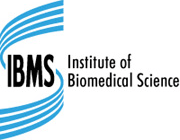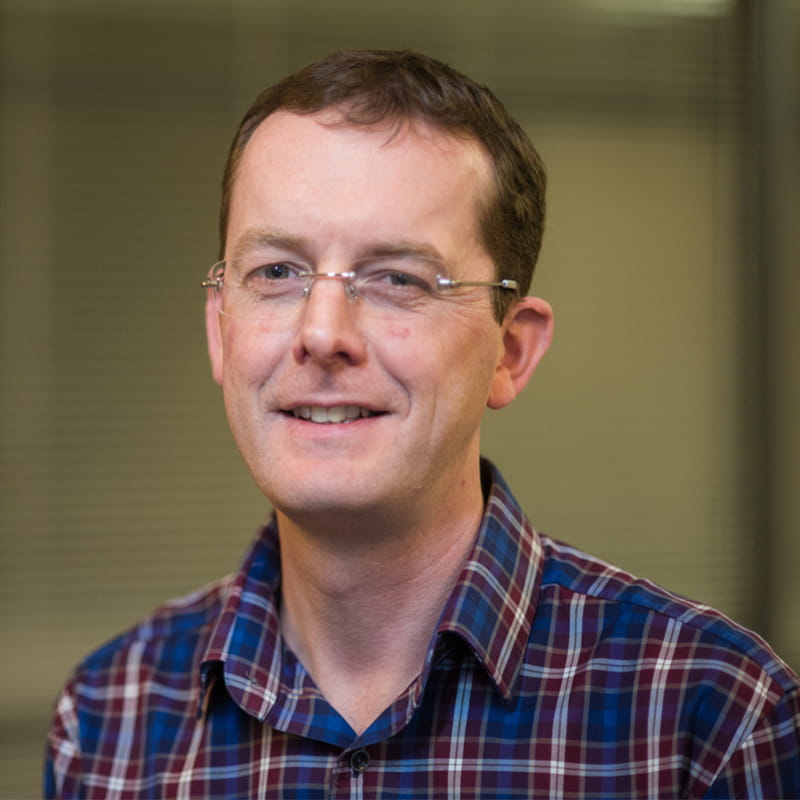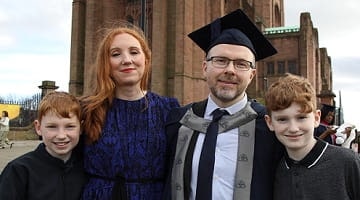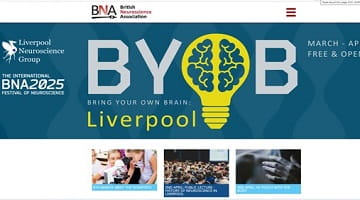Why study this course with LJMU?
- Accredited by the Institute of Biomedical Science
- 95% of students surveyed said the teaching staff were good at explaining things (National Student Survey 2024)
- Opportunity to undertake a years work placement
- You may apply to study on the Applied Biomedical Science programme (which is approved by the Health and Care Professions Council) with regular NHS laboratory practice
- Links with local organisations, such as the Roy Castle Foundation Laboratories for research into lung cancer, Transplant Immunology at the University of Liverpool, local NHS departments, including those at Alder Hey Children's Hospital, Whiston Hospital and the Liverpool Womens Hospital, plus companies such as Mast Diagnostics and Eden Bioscience
- Lively department with excellent teaching and active research
- International Foundation Year course available offering direct progression onto this degree programme - visit LJMU's International Study Centre to find out more
About your course
BSc (Hons) Biomedical Science with Foundation Year at Liverpool John Moores University is the ideal course if you are interested in this subject but lack the necessary qualifications to study it at degree level. The course is professionally accredited by the Institute of Biomedical Science and offers you exciting placement opportunities with our industry partners. The development of advanced laboratory skills are integral to this fascinating degree, which covers the broad areas of human bioscience and diagnostic science.
About the Foundation Year
The Foundation Year is ideal if you have the ability to study for a degree but don't have the qualifications to enter directly onto the Biomedical Sciences honours degree programme. Once you pass the Foundation Year you will progress directly onto the first year of the honours degree. If you are a full-time UK student, you will qualify for student financial support for the full duration of your course (subject to eligibility criteria).
About BSc (Hons) Biomedical Science
As a Biomedical Science student, you will cover the broad areas of human bioscience and diagnostic science, including medical microbiology, immunology, histology, haematology, medical genetics and cancer alongside basic sciences such as biochemistry, physiology, molecular and cell biology. Laboratory work is an important part of this course, giving you the high-level skills and understanding required of a biomedical scientist by the time you graduate.
You may consider taking the more practical applied biomedical sciences route. Acceptance onto this route is by competitive application. If successful, you will spend about 1,000 hours working in a local NHS laboratory and gaining academic credit for your work-based study.
This will take the form of long summer blocks in a relevant laboratory with further attendance during your final year of study. If you decide not to take this option we encourage you to undertake a year's work placement or a shorter placement between your second and third years to gain experience.
One of the advantages of being accredited by the Institute of Biomedical Sciences is that you can join the Institute in your final year and get copies of their free magazine which has employment information and job advertisements. They also award a prize to the best biomedical science graduate and to other students who have shown particular promise.
Course modules
What you will study on this degree
Further guidance on modules
Modules are designated core or optional in accordance with professional body requirements, as applicable, and LJMU’s Academic Framework Regulations. Whilst you are required to study core modules, optional modules provide you with an element of choice. Their availability may vary and will be subject to meeting minimum student numbers.
Where changes to modules are necessary these will be communicated as appropriate.
Core modules
Core modules
Core modules
Optional modules
Core modules
Professional accreditation
This course is accredited by the Institute of Biomedical Science. You may apply to study on the Applied Biomedical Science programme (which is approved by the Health and Care Professions Council) with regular NHS laboratory practice.
Our links with local hospitals, public health and private laboratories ensure that course content is informed by the latest research and developments in todays biomedical science industry and tailored to the needs of employers. Our connections include the Walton Centre of Excellence in Neurology and Neurosciences, the Roy Castle Foundation Laboratories for research into lung cancer, Alder Hey Children's Hospital and Glaxo/Wellcome Laboratories.

Your Learning Experience
Excellent facilities and learning resources
We adopt an active blended learning approach, meaning you will experience a combination of face-to-face and online learning during your time at LJMU. This enables you to experience a rich and diverse learning experience and engage fully with your studies. Our approach ensures that you can easily access support from your personal tutor, either by meeting them on-campus or via a video call to suit your needs.
The number of formal teaching hours varies from module to module. On average you will spend 12-15 hours in lectures, seminars, workshops, lab sessions and tutorials each week. In Level 6, you will spend approximately half of your time on an independent research project.
If you take the applied biomedical science route, some of your time will be spent in supervised laboratory work with your employer, supported by one-to-one tutorials and small group meetings with your clinical placement facilitator at the university.
Work-related Learning
This course is highly vocational with a strong element of work-related learning. For those students who are successful in their application to take the applied biomedical science route, over the three years of your degree, this provides an opportunity to find out what it's really like to work in an NHS lab. Alternatively the sandwich option provides a year's work experience in industry, and there are opportunities for shorter periods of work experience. For those students who do not take a work experience placement, the course provides many opportunities to develop relevant skills. Whichever route you take, you will gain invaluable hands-on experience, practicing skills you have learnt during the course and boosting your employability, giving you a head start when you eventually enter the competitive graduate job market.
Dedicated personal tutor, plus study skills support
Being able to discuss course-related issues, particularly in your first year, is crucial and for this reason you will receive different kinds of support for specific aspects of your course.
A personal tutor will provide continuous support for the duration of your time at LJMU, meeting you regularly and setting up one-to-one progress review meetings to monitor and help improve your work.
In the time leading up to and during your placement, you will be allocated a tutor who will visit you in your workplace. If you opt to go down the Applied Biomedical Science route, this role will be covered by a Clinical Placement Facilitator. Finally, once you reach your final year, a supervisor will guide you through your research project.
The school is fully committed to promoting a learning environment that supports a culture of equality, diversity and inclusivity (EDI) and has a Disability Support Coordinator, an EDI Coordinator and a School EDI Working Group. Personal Tutors also play a vital role in promoting awareness of support services for students.
Assessment varies depending on the modules you choose, but will usually include a combination of exams and coursework.
Exams are normally held at the end of the year and questions may be multiple choice, short answer, interpretative, problem-based learning or essay-based.
Coursework assessments may include phase tests, practical reports, data handling, oral presentations, poster presentations, group discussions, essays, portfolios or the evaluation of your practical skills and most are based on individual assignments.
Feedback is normally provided within three weeks of submitting coursework and may be via Canvas (our virtual learning environment), face-to-face or in writing. We believe that constructive feedback is vital in helping you identify your strengths as well as the areas where you may need to put in more work.
Where you will study
You will study at the Byrom Street site in the university's City Campus in the heart of Liverpool. Our state-of-the-art laboratories and teaching spaces will ensure you enjoy a first-class study environment. The Avril Robarts library is within easy walking distance and here you'll find all the information you need to support your studies.
Course tutors

Dr Kenneth Ritchie
Programme Leader
I enjoy the fact that we are educating our students in the knowledge and skills, which will enable them to make a significant contribution to society as demonstrated by the essential role played by Biomedical Scientists during the pandemic
I enjoy the fact that we are educating our students in the knowledge and skills, which will enable them to make a significant contribution to society as demonstrated by the essential role played by Biomedical Scientists during the pandemic
Dr Ritchie completed an undergraduate degree in Pharmacology at the University of Aberdeen and then a PhD in drug delivery at the Welsh School of Pharmacy at the University of Cardiff. He worked as a Postdoctoral Researcher at the Scripps Research Institute in San Diego California, after which he carried out research for Cancer Research UK at the University of Dundee. Kenny joined LJMU in 2009 and now holds the position of Reader in Toxicology and is Programme Leader for the BSc(Hons) Biomedical Science. Dr Ritchie's research covers finding new plant-based drugs that could be useful in both the treatment and prevention of cancer through his work for LJMUs Centre for Natural Products Discovery, as many of the world's cancer drugs were initially derived from plants.


While academically challenging, this course provided me with the broad range of skills required to succeed in the highly competitive scientific job market. First class teaching, first class employability, and a first class student experience.
Career paths
You will enjoy an exciting range of career opportunities after graduation.
Approximately one third of our graduates decide to pursue careers in the NHS and public health laboratory services, providing diagnostic, prognostic, monitoring and other support for patients. Others enter the pharmaceutical industry to work in research and drug development or other laboratory-based careers. Clinical trials fieldwork is also becoming increasingly popular, as is sales and marketing for diagnostic and therapeutic products. Graduates have entered the Health and Safety Executive, medical records and similar occupations. Some students also opt to do further qualifications, such as postgraduate medicine, teaching, specialised MSc programmes or research qualifications
Student Futures - Careers, Employability and Enterprise Service
A wide range of opportunities and support is available to you, within and beyond your course, to ensure our students experience a transformation in their career trajectory. Every undergraduate curriculum includes Future Focus during Level 4, an e-learning resource and workshop designed to help you to develop your talents, passion and purpose.
Every student has access to Careers Zone 24/7, LJMU's suite of online Apps, resources and jobs board via the LJMU Student Futures website.
Tuition fees and funding
- Full-time per year:
- £9,535
- Placement year:
- £1,905
Fees
The fees quoted above cover registration, tuition, supervision, assessment and examinations as well as library membership and student IT support with access to printed, multimedia and digital resources including programme-appropriate software and on campus Wi-Fi.
Financial Support
The University offers a range of scholarships to support students through their studies. You'll find all the information you need on our specialist funding pages, including details of the Student Support Fund and other activities to support with the cost of living.
Additional Costs
In addition to fees, students should also keep in mind the cost of:
- Accommodation
- Travel costs including those for placements, visas and travel for studying abroad and field trips unless paid for by LJMU
- Stationery, IT equipment, professional body membership and graduation gown hire
The University reserves the right to increase tuition fees in accordance with any changes to the maximum allowable fees set by the UK Parliament. In the event of such a change, any fee increase will be subject to a maximum cap of 10% of the total course cost as originally stated at the time of your offer.
A DBS check is not required for your application, however a DBS may be required for modules where there is a work based learning placement option. Work based learning placements that do not require a DBS check are available. This does not apply to the Applied Biomedical Science route.
Entry requirements
Please choose your qualifications below to view requirements
Grades/points required from qualifications: CCD-CCC (88-96)
Work out how many UCAS points your qualifications are worth by visiting the UCAS Tariff Calculator.
Qualification requirements
How to apply
Securing your place at LJMU
UCAS is the official application route for our full-time undergraduate courses. Further information on the UCAS application process can be found here https://www.ljmu.ac.uk/study/undergraduate-students/how-to-apply.
Your university life
From accommodation and academic support to clubs and societies. Find out what LJMU has to offer.
Related Links
Talk to our students
Connect with a current LJMU student for advice and guidance on university life, courses and more.
See what our students are saying
At LJMU we want you to know you're making the right choice by studying with us. You can see what our students are saying about their experience with us through their reviews on the following websites:
Related Links
News and views
Browse through the latest news and stories from the university
The university reserves the right to withdraw or make alterations to a course and facilities if necessary; this may be because such changes are deemed to be beneficial to students, are minor in nature and unlikely to impact negatively upon students or become necessary due to circumstances beyond the control of the university. Where this does happen, the university operates a policy of consultation, advice and support to all enrolled students affected by the proposed change to their course or module.
Further information on the terms and conditions of any offer made, our admissions policy and the complaints and appeals process.


































